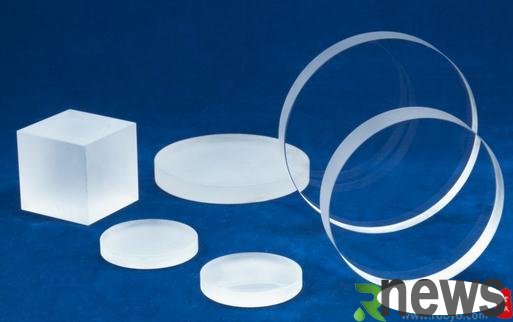Main components of quartz glass - Cleaning of quartz glass Main components of quartz glass Quantz glass is a special glass containing only a single component of silica. Due to the different types, processes and raw materials, foreign countries are o...

Main components of quartz glass - Cleaning of quartz glass
Main components of quartz glass
Quantz glass is a special glass containing only a single component of silica. Due to the different types, processes and raw materials, foreign countries are often called silicic acid glass, quartz glass, fused quartz, fused quartz, synthetic fused quartz, as well as transparent, translucent, opaque quartz that have no clear concept. In my country, it is collectively called quartz glass, and is mainly classified according to process, use and appearance, such as electromelt transparent quartz glass, fused quartz glass, air-refined transparent quartz glass, synthetic quartz glass, opaque quartz glass, optical quartz glass, semiconductor quartz glass, quartz glass for electric light sources, etc. It is absolutely inappropriate for people to name this material with a simple word "quartz" because "quartz" is a common name for crystalline silica, which is different from glassy silica in terms of physical and chemical properties.
Quarz glass is made of naturally crystalline quartz (crystal or pure silica), or synthetic silanes at high temperature. The melted products have excellent processing properties. Within the extremely high viscosity range, the pipes and rods can be heated like ordinary glass fine work. They can also be mechanically processed with diamond or silicon carbide abrasives made of diamond or silicon carbide to make various complex shapes of instruments and special products. The performance of quartz glass mainly depends on its purity, followed by the process or thermal system. The presence of trace impurities will have a significant impact on the use performance of quartz glass; at the same time, due to the slight negligence of the process or thermal system, it will bring various defects to the appearance quality and produce a large number of waste products.
Cleaning and Maintenance of Quartz Glass
Quarz glass is an acidic material. Except for hydrofluoric acid and thermal phosphoric acid, it is inert to any other acid, and is the best acid-resistant material. The corrosion degree of alkali and salt on quartz glass is also very small at room temperature, so it is not ruled out that quartz glass is used in these reagents.
transparent quartz glass has better chemical stability than opaque quartz glass, because the latter is due to the increased surface area exposed to the corrosion liquid due to the presence of air bubbles. Quartz glass is not hygroscopic and does not weather. Quartz glass is very sensitive to all alkali and alkaline earth compounds, and the extremely slight trace amounts of these compounds can also cause crystallization at high temperatures.
1. Quartz glass products are valuable materials and must be handled and taken care of when used;
2. Quartz glass that needs to be used at high temperature must be wiped clean before use. It can be soaked with 10% hydrofluoric acid or wash solution, then washed with high purity water or treated with alcohol. Wear thin wire gloves during operation, and straight contact with quartz glass is not allowed by hand;
3. All kinds of quartz glass have a maximum operating temperature, and should not exceed this temperature when used, otherwise crystallization or softening and deformation will occur;
4. Although quartz glass material has extremely high thermal stability, it can withstand severe sudden changes in temperature. However, in actual use, due to the different residual strain and product shape, there are certain differences in thermal stability, so attention should be paid to it during use;
5. Quartz glass products are allowed to be continuously used at high temperatures, which is beneficial to extending the life of quartz glass and improving temperature resistance. On the contrary, the number of times used quartz glass products is limited when using intermittently at high temperatures;
6. Quartz glass is an acidic material. When using it at high temperatures, contact with alkaline substances (such as water glass, asbestos, potassium and sodium compounds, etc.) will be strictly avoided, otherwise its anti-crystalline properties will be greatly reduced.